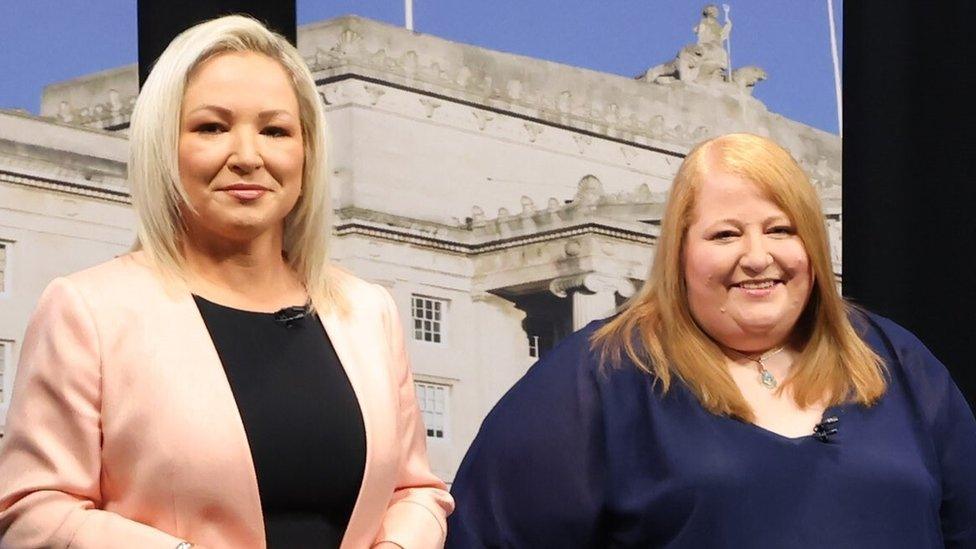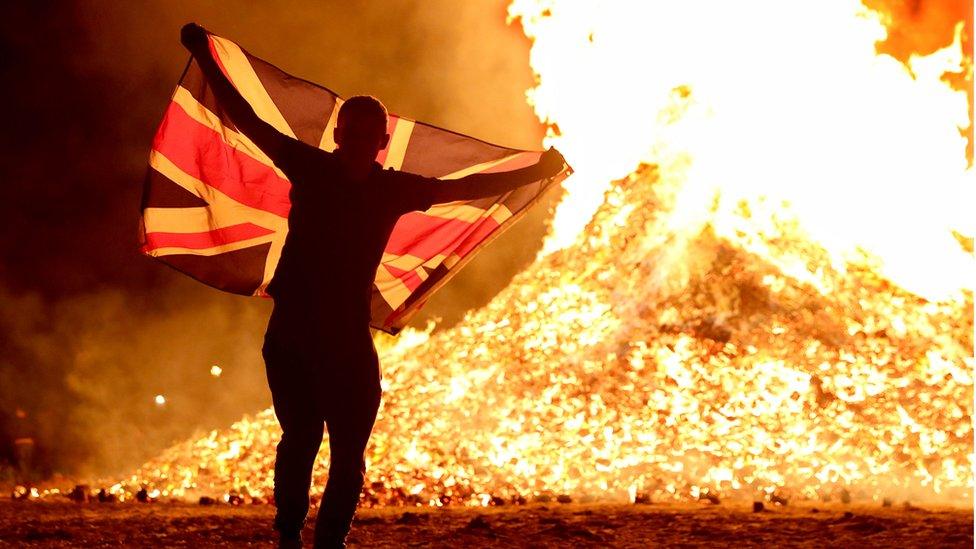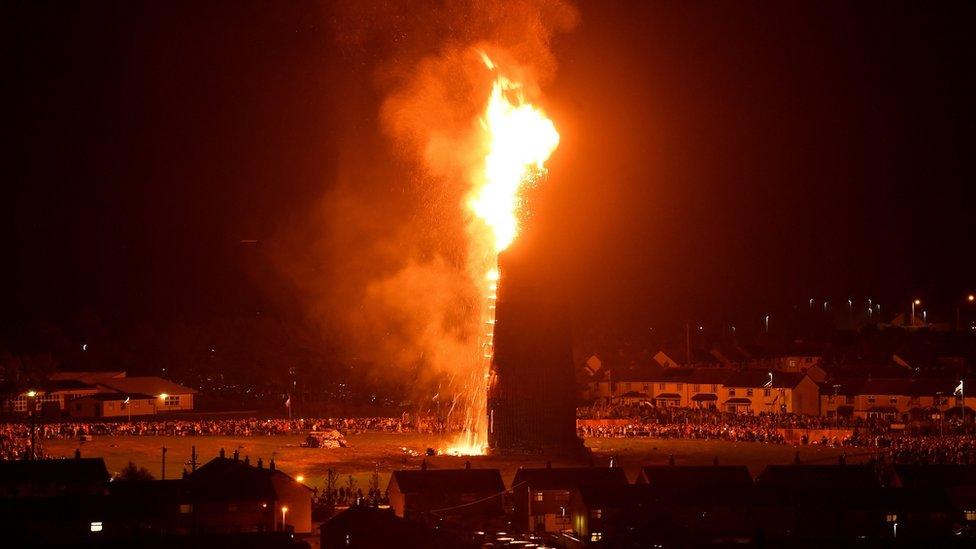Condemnation of hanging effigies of female politicians on bonfire
- Published

Effigies of Michelle O'Neill and Naomi Long were among those hung from a bonfire in Carrickfergus
Effigies of female politicians on a County Antrim bonfire have been condemned as "sheer vileness" by Justice Minister Naomi Long.
An effigy of her was among those hanging from the bonfire, along with representations of Michelle O'Neill and Mary Lou McDonald.
Bonfires are lit in some unionist areas on 11 July each year as part of Battle of the Boyne commemorations.
Police said they were aware of images of the incident and were investigating.
Alliance Party leader Mrs Long said pictures of the Glenfield bonfire in Carrickfergus had been shared with her.
"It made me sad and depressed that there are people in our community that harbour such vile hatred of anyone else," she told BBC News NI.
"What shocked me even more was the fact that among the photographs there were those of children at a fun day happening right beside where these effigies were hanging basically suspended by the neck."
'Hardened'
The justice minister described it as unnerving and disturbing, adding: "You wouldn't be human if it didn't affect you."
"You think you are hardened to it after so many years but there is always a way to make it even worse," she said.
"It is hard to describe that feeling of sheer vileness and hatred that just radiates off something like that."
Allow X content?
This article contains content provided by X. We ask for your permission before anything is loaded, as they may be using cookies and other technologies. You may want to read X’s cookie policy, external and privacy policy, external before accepting. To view this content choose ‘accept and continue’.

She said the effigies demonstrated "pure unadulterated sectarian bigotry" and authorities needed to tackle those behind the displays.
Sinn Féin assembly member Gerry Kelly said that the presence of effigies on bonfires was "wrong, deeply offensive" and a "hate crime".
Ms McDonald is leader of his party and Ms O'Neill is the deputy leader.
"There is an onus on unionist political and community leaders to stand up against these displays of sectarian hatred and make it clear there is no place for them in this society," he said.
Mr Kelly said his party had reported a number of bonfire-related hate crimes to the police.
Allow X content?
This article contains content provided by X. We ask for your permission before anything is loaded, as they may be using cookies and other technologies. You may want to read X’s cookie policy, external and privacy policy, external before accepting. To view this content choose ‘accept and continue’.

Democratic Unionist Party leader Sir Jeffrey Donaldson said while most of the events were "hugely successful", the other displays must be "outrightly condemned as wrong".
"Throughout my lifetime I have had the privilege to celebrate and educate others about my identity all over the world," he said.
"At no point has burning posters, flags or pictures of serving politicians featured as part of that."
Ulster Unionist Party leader Doug Beattie said the effigies were utterly vile and did not represent the union and unionist culture he believed in.
Following the Eleventh Night, police had already confirmed they were investigating reports of flags and emblems being placed on some bonfires.
Thousands of people in unionist areas in Northern Ireland commemorate the anniversary of the battle every summer with bonfires on 11 July and parades on 12 July.
The events celebrate the 1690 victory of the Protestant William of Orange - also known as King Billy - over his Catholic father-in-law, King James II.
The Eleventh Night bonfire tradition commemorates the preparations for the battle, when large fires were lit to welcome William of Orange and guide him along on his journey.
Related topics
- Published11 July 2023

- Published12 July 2022
